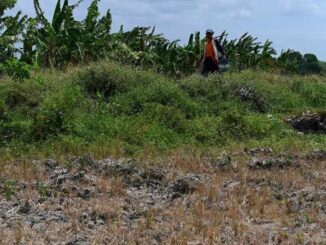
CALI, Colombia – Countries at the UN COP16 summit on nature on Friday approved a measure to create a permanent body for Indigenous peoples to consult on United Nations decisions about nature conservation.
The consultative body is considered a breakthrough in recognizing the role that Indigenous peoples play in conserving nature globally, including some of the most biodiverse areas of the planet, according to Indigenous and environmental advocates.
Nearly 200 countries convened in the Columbian city of Cali aiming to implement the 2022 Kunming-Montreal Global Biodiversity Framework agreement, which aims to halt the rapid decline of nature by 2030.
The consultative body, which will also extend to local communities, will help to incorporate traditional knowledge and practices into conservation efforts.
Countries also adopted a measure that recognizes the role of people of African descent in caring for nature, which COP16 host Colombia said would grant such communities easier access to resources to fund their biodiversity projects and participate in global environmental discussions.
The measure’s adoption was met with chants and singing by campaigners, as well as words of thanks from Colombia Foreign Minister Luis Gilberto Murillo, who said the breakthrough was particularly important for Latin America and the Caribbean.
“Our territories, which cover much of the natural wealth of the planet, have also been home to people of African descent and Indigenous peoples whose sustainable practices are needed to face the environmental challenges that we all share today,” Murillo said.
Earlier in the week, Armenia was announced as the host of COP17, which will be held in 2026. —Reuters





Be the first to comment